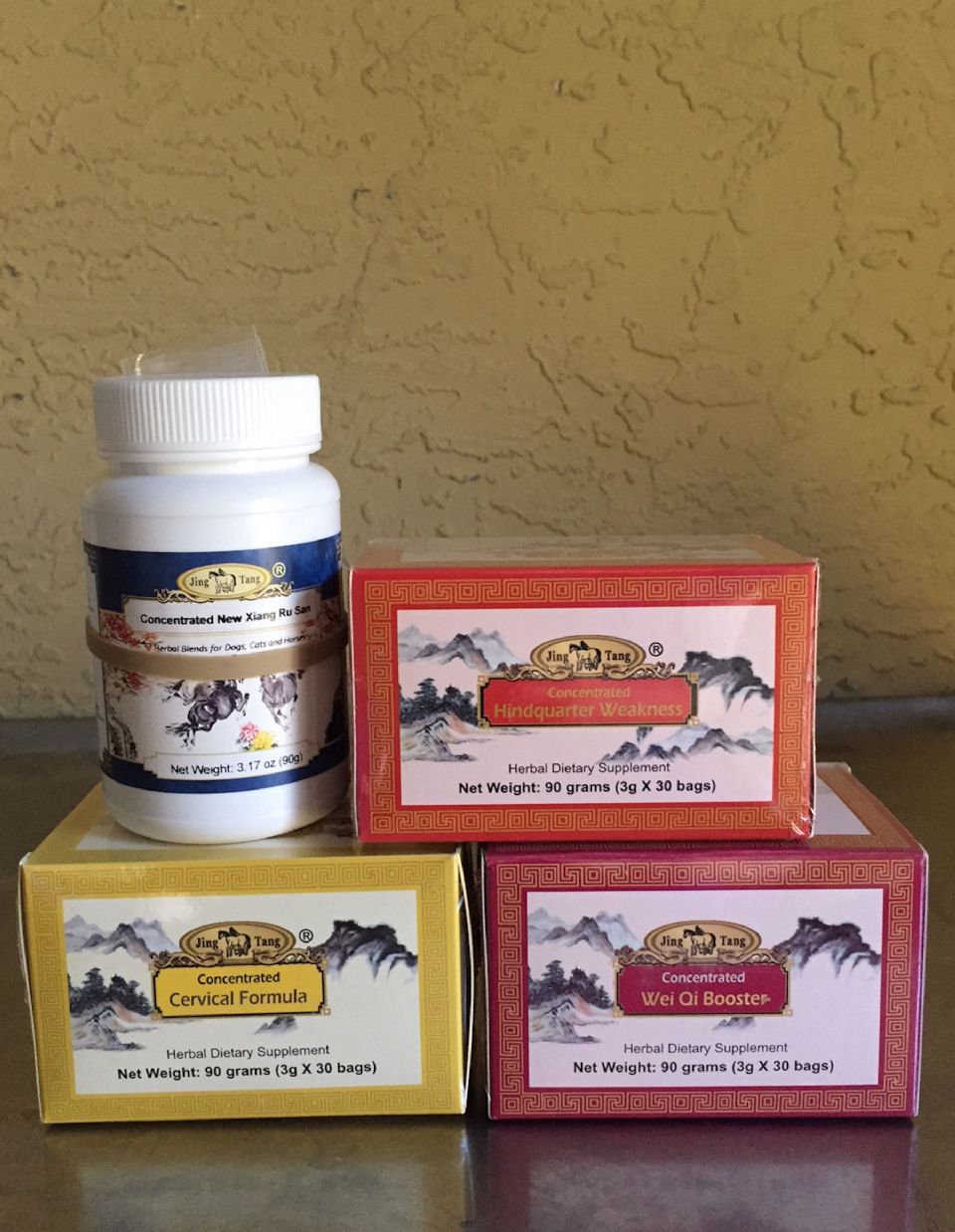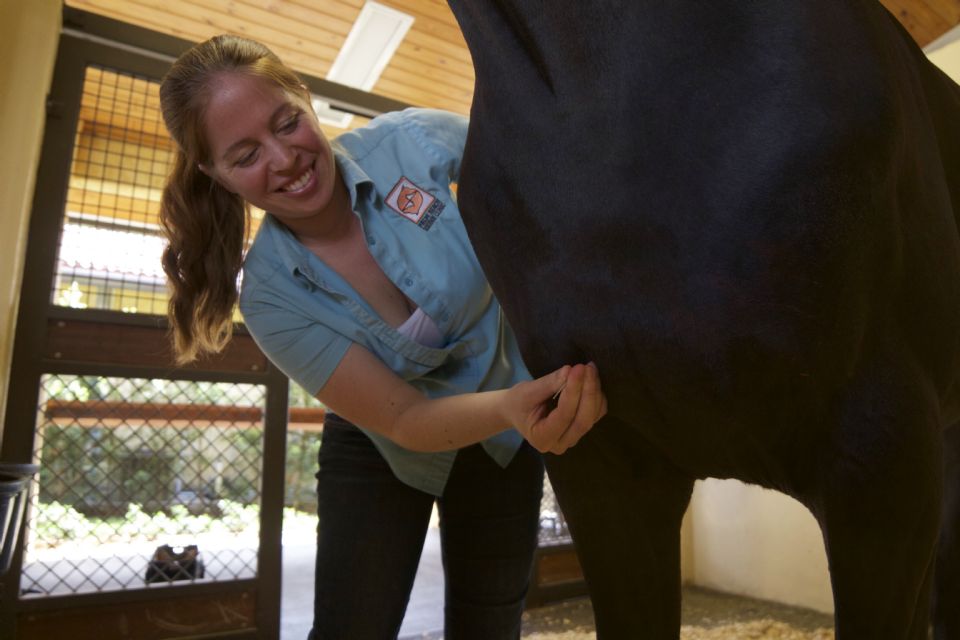Palm Beach Equine Clinic Helps to Bring Chinese Herbal Medicine West
February 7, 2019 - Wellington, FL
Chinese herbal medicine is a relatively new treatment among equine veterinarians in the western world, but the philosophy of herbals for healing has existed for thousands of years as part of Traditional Chinese Veterinary Medicine (TCVM). Helping to lead the Chinese herbal medicine charge westward, veterinarians at Palm Beach Equine Clinic (PBEC) have incorporated the use of herbs and herbal treatments as an integral part of their alternative therapy options for patients.
Similar to the use of all-natural methods to treat illness in humans, herbal medicine for animals also utilizes ancient Chinese formulas aimed at treating the underlying causes of a disease or illness to help the body heal itself, rather than only temporarily treating the presented symptoms.
One PBEC veterinarian who has found these all-natural methods as a benefit in her treatments is Dr. Janet Greenfield-Davis, who specializes in both acupuncture and Chinese herbal medicine.
“There is an herbal product for anything,” said Dr. Greenfield-Davis, who found herbal medicine six years ago when she started specializing in acupuncture, which joins Chinese herbal medicine as two of the most common forms of TCVM therapies. “Herbals treat a variety of ailments from sore muscles to problems affecting the liver, heart, kidneys, joints, and more. I pair the herbals with my acupuncture, which is traditionally the ancient Chinese way.”
In TCVM, once a symptom of disharmony in the body or disease is identified, treatment proceeds through four possible branches, including acupuncture, food therapy, a form of Chinese medical massage called Tui-na, and Chinese herbal medicine. From topical treatments, including salves and powders, to edible treatments, Chinese herbal medicine not only draws on natural products, but also on the natural tendencies of the horse itself. Being herbivores, horses ingest herbs found in the wild while they are grazing.
While the traditional methods date back thousands of years, the treatments developed within Chinese herbal medicine are ever-evolving. Coupled with modern technology, historical and ancient Chinese wisdoms are still very effective. In addition, the treatments utilize the properties of many common herbs with widely known uses. By utilizing ginseng for fatigue, chamomile for calming, garlic as an antibiotic, and arnica as an anti-inflammatory, the recipes used in herbal medicine draw from only natural sources. This is making herbal treatments more common among sport horses that undergo drug testing for banned substances while competing.
“The competitive world is accepting herbal medicine more and more every year,” said Dr. Greenfield-Davis. “It provides an alternative for horses at high levels, especially in FEI classes, that need a little extra support. They aren’t drugs, they don’t test, and they are a natural product.”
Dr. Greenfield-Davis believes that offering such alternative treatment options is a sizeable advancement for PBEC, in that herbal medicines provide owners with another option when traditional western medicines may not be their preference.
“It enhances our practice because it gives owners a place to turn,” she said. “There is a lot of stigma to using particular western drugs, and I think this gives people a choice; they don’t have to use the traditional western medicines anymore because they can now turn to eastern medicines.”
While it is a personal choice to use a more holistic or all-natural approach to veterinary care for some horse owners, herbs also represent a practical alternative. According to Dr. Greenfield-Davis, herbal medicine is the perfect choice when treating a horse with an aversion to needles, or for horses that do not respond to particular medicines or therapies.
“We are able to work in a more natural way instead of using steroids and things of that nature,” added Dr. Greenfield-Davis. “In some cases, I will use solely herbals and the treatments produce a lot of wonderful results.”
As PBEC continues to advance its alternative medicine therapies, the equestrian community is also learning to accept new possibilities. For PBEC and Dr. Greenfield-Davis, Chinese herbal medicine is a step into the future with a nod to ancient Chinese history.
About Dr. Greenfield-Davis
Dr. Greenfield grew up in Northern California, and her passion for horses started during her time showing hunters on the “A” circuit, which later led her to study veterinary medicine at California Polytechnic State University. She graduated from veterinary school at the University of Glasgow in 2010 and has since specialized in equine acupuncture and herbal medicine. Dr. Greenfield hopes to continue her studies in holistic medicine by incorporating food therapy into her treatments at Palm Beach Equine Clinic.





